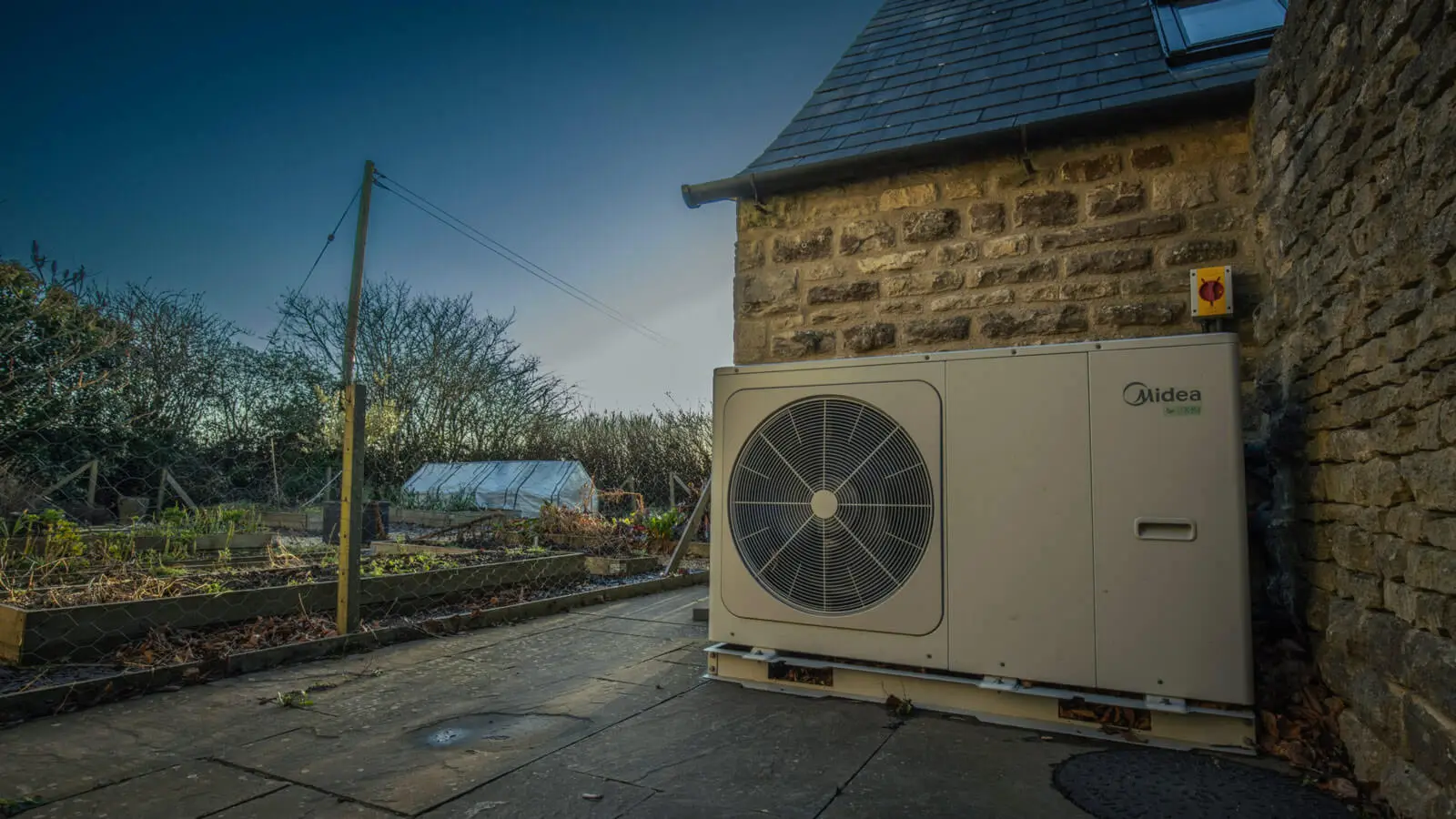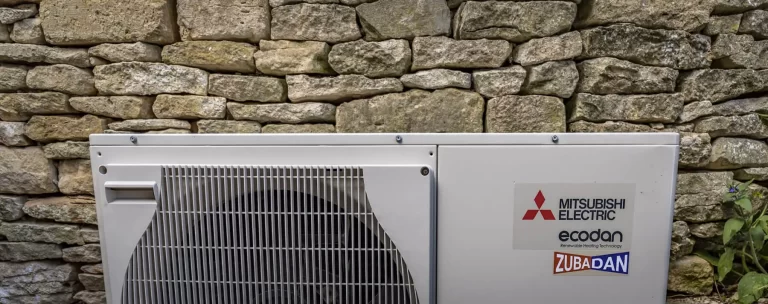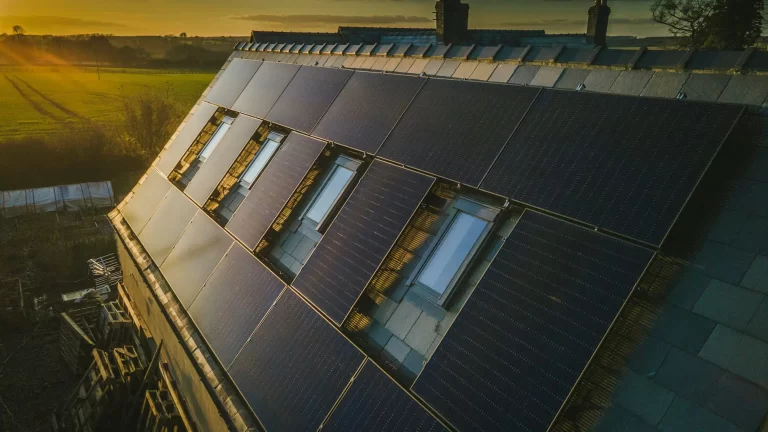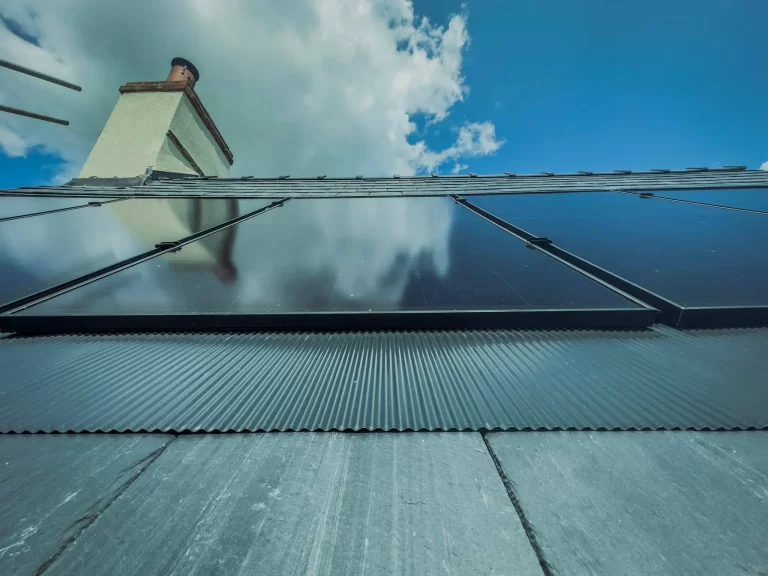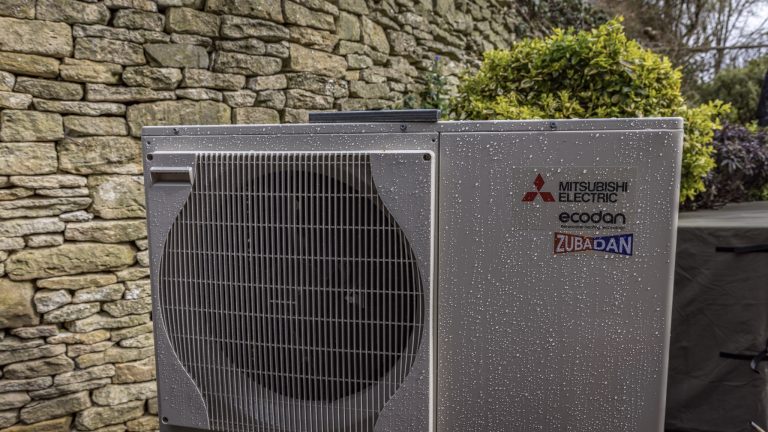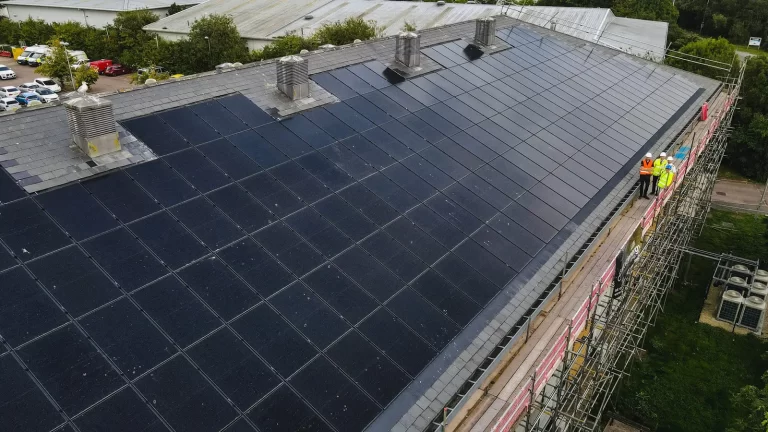Heat pumps are quickly becoming a popular hot water and heating system for all different kinds of households, as they’re capable of both heating and cooling spaces while supporting a more eco-friendly way of life, unlike the oil or gas boiler. However, while the environmental benefits of heat pumps are clear to most, homeowners often find themselves wondering about one key factor – the running costs. It’s true that in many circumstances heat pumps can save you money, but it’s important to understand just how much you could save in your circumstances.
This guide aims to shed light on how much running an air source heat pump could be for you, as well as the factors that might impact this, helping you to make the right decisions for both your budget and your household’s needs.
How Much Does an Air Source Heat Pump Cost to Run?
There’s no one right answer to this question, but you can expect the average cost of running a heat pump to be around £1,097 each year, assuming the cost of energy is around 28.62 pence per kWh. However, everyone’s heat pump running costs will be slightly different and may vary from year to year as well, especially if you find yourself using your heating more often than normal. You can get a better idea of how much an air source heat pump system could cost you to run by considering the following:
Electricity Usage
A key part of calculating the running costs of your heat pump is understanding how much electricity it uses. Unlike traditional heating systems that burn gas or oil to create warmth, heat pumps work a bit differently and use electricity to move heat from outside to inside your home, which is a more efficient process. The efficiency of a heat pump is often measured by something called the Coefficient of Performance (CoP) for heating, and the Seasonal Coefficient of Performance (SCoP) for its efficiency over the whole year.
To figure out how much electricity your heat pump might use, you need to look at two things: how much heat it needs to produce (its output, measured in kilowatts or kW) and its CoP. For instance, if you have a heat pump with a CoP of 3.5 that needs to produce 10 kW of heat, it will use about 2.86 kW of electricity to do so (because 10 kW divided by 3.5 equals 2.86 kW). Knowing this, you can then multiply the electricity used by how many hours the pump runs and the cost of electricity to estimate how much it will cost to run your heat pump.
Cost Per Unit of Heat
Thanks to heat pump efficiency, each unit of heat it generates for you is usually available at a more economical rate than with traditional heating systems. To calculate how much each unit of electricity is costing you, you should divide the current electricity price per kWh by the system’s Coefficient of Performance (CoP) or Seasonal Coefficient of Performance (SCoP).
Comparative Analysis
To put the running costs of heat pumps into perspective, compare them to traditional heating systems to understand their long-term financial benefits. While the upfront cost of a heat pump might be higher, the operational costs are typically lower due to their higher efficiency. For instance, replacing an old electric or oil heating system with a heat pump can lead to substantial savings on energy bills. The exact savings will depend on various factors, including the type of system replaced, the insulation quality of the property, and the specific heat pump model.
Factors Influencing Heat Pump Running Costs
There are a few different factors that can affect how much your heat pump costs to run and keeping these in mind can help you to not only calculate how much you may end up spending, but also inform your initial installation decisions as well.
Type of Heat Pump
Choosing between an air source and a ground source heat pump will affect both your installation costs and ongoing running costs. Air source heat pumps, which extract heat from the air outside, tend to have lower initial installation costs but may be slightly less efficient in extremely cold temperatures compared to ground source heat pumps. However, thanks to modern heat pump technology, you won’t notice any difference in the way the pump heats your home, meaning you’ll have as much heat as you need to stay warm.
Ground source heat pumps, which draw heat from the ground, offer higher efficiency levels due to the relatively stable ground temperatures. This increased efficiency can lead to lower running costs over time, despite the higher upfront investment. But, for many households, ground source heat pumps won’t be suitable due to the amount of land needed for their installation. However, as the difference in running costs is so small, most homeowners won’t notice a huge difference anyway unless they’re using huge amounts of energy.
Energy Efficiency Ratings
A heat pump’s running costs are directly tied to its efficiency, usually indicated by its Coefficient of Performance (CoP) for heating and the Seasonal Coefficient of Performance (SCoP) for overall performance. Higher CoP or SCoP values signify a more efficient unit, capable of producing more heat per unit of electricity. This efficiency not only leads to reduced electricity consumption but also lowers the overall cost of operating the heat pump. Investing in a highly efficient model can thus significantly impact your energy bills, offering considerable savings in the long run.
Home Insulation
An often-overlooked factor that significantly affects heat pump efficiency and running costs is the quality of home insulation. Proper insulation acts as a barrier, keeping warm air inside during winter and cool air in during summer, thereby reducing the workload on your heat pump. Homes with excellent insulation require less energy to maintain comfortable temperatures, which in turn, enhances the efficiency of the heat pump. However, even homes with poor insulation can benefit from heat pump savings, it may just not be quite as efficient as in a well-insulated home.
Reducing Heat Pump Running Costs
While the inherent efficiency of heat pumps offers substantial savings, especially when compared to traditional heating systems, there are strategies homeowners can employ to further reduce running costs.
Routine Maintenance: Just like any heating system, air source heat pumps require regular maintenance to keep them running smoothly. Ensuring your system is checked annually by a professional can prevent minor issues from becoming major problems, thus maintaining the heat pump’s efficiency. Simple actions, such as keeping the outdoor unit clear of debris and checking filters, can also make a significant difference.
Smart Thermostat Integration: Utilising smart thermostats with your heat pump can lead to more efficient operation. These devices allow for more precise control over your heating and cooling, enabling you to adjust settings based on actual usage patterns and external temperatures. By only heating or cooling your home as necessary, you can significantly reduce unnecessary energy consumption.
Optimise Insulation: One of the most effective ways to reduce the running costs of any heating system, including heat pumps, is to improve your home’s insulation. Well-insulated homes retain heat far more effectively, reducing the workload on your heat pump. Investing in better loft, wall, and floor insulation, as well as high-quality double glazing, can dramatically decrease the amount of energy required to maintain comfortable temperatures.
Understanding Tariffs and Electricity Usage: Being savvy about when and how you use your heat pump can also lead to cost savings. For instance, if your electricity tariff offers cheaper rates at certain times of the day, you can schedule your heat pump to run predominantly during these off-peak hours. Additionally, monitoring your electricity usage can help you identify patterns and make adjustments to reduce consumption without compromising on comfort.
Using Renewable Energy Sources: For those looking to maximise the sustainability and cost-effectiveness of their heat pump, integrating renewable energy sources like solar panels can be a game-changer. By generating your own electricity, you can significantly reduce your reliance on the grid, thereby lowering your energy bills. In some cases, excess energy can even be sold back to the grid, creating an additional income stream.
Find a Heat Pump That Works for You
It’s clear that heat pump running costs can vary, but making the switch could bring your household some significant financial savings. For those considering buying an air source heat pump for the first time, or anyone looking to optimise their current heat pump system, our team at Cotswold Energy is here to help. With expertise in the latest heat pump technologies and a deep understanding of the UK’s energy landscape, we can provide tailored advice and solutions. Whether it’s selecting the right heat pump model to suit your home’s needs or exploring other renewable energy integrations, our team is equipped to guide you through every step of the process.

